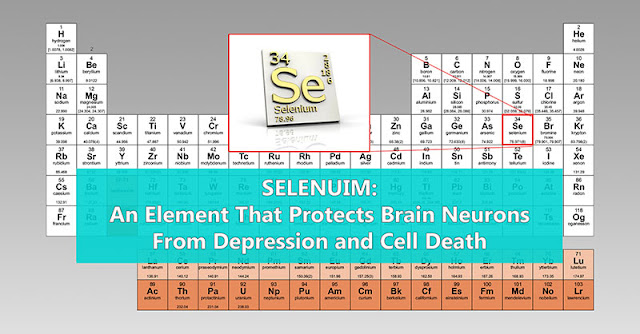It was revealed in an animal study published in the journal Cell that selenium aids in preventing neurons from dying. Furthermore, it demonstrated the element’s central role in mitigating cell death.
A research was also conducted at the Institute of Developmental Genetics (IDG) at Zentrum Munchen in Germany. This aims to examine the correlation between the selenium-containing enzyme GPX4 and a novel type of cell death called ferroptosis.
Upon investigation, they found out that the animal model’s lifespan did not improve when the selenium content in GPX4 was replaced with sulfur. The research team says that the mouse models with sulfur-based GPX4 enzyme did not survive for more than three weeks. Neurological complications were the main cause of the animal’s shorter lifespan, as claimed by the scientists. In addition to this, they also observed that when selenium containing PGX4 was not present, a distinct subpopulation of specialized brain neurons was lost during the postnatal development.
In a press release, the researcher Dr. José Pedro Friedmann Angeli states that the study, for the first time, demonstrates that selenium is a fundamental factor for the postnatal development of a specific type of interneurons. He also says that with selenium-containing GPX4, these specialized neurons will be protected against oxidative stress as well as ferroptotic cell death.
Studies: Selenium Also Prevents Depression and Brain Damage
In some earlier studies, selenium shows to help in improving brain health and stave-off the body against the related condition. A study in 2014 which was carried out by researchers at the University of Otago and published in the Journal of Nutrition, revealed that if the body has enough level of selenium, it may be able to avoid the onset of negative moods and depression symptoms as well.
As part of the study, the research team pooled data on 978 young adults aged 17 to 25 years old. They were instructed to answer a depression questionnaire and monitor their daily mood for two weeks.
Through a series of blood tests, the participants’ selenium levels were determined. At the end, experts found out that those participants with extremely low selenium levels were at the risk of poorer mood and depressive symptoms. On the other hand, those with adequate consumption of selenium may lessen the risk of depression.
The study leader, Dr. Tamlin Conner told this to Medical Xpress online:
“Our strongest finding was that young adults with the lowest selenium concentrations reported the most depressive symptoms. Although we did not test the physiological mechanisms, other research shows that oxidative damage to the brain and nervous system contributes to the development of depression. Adequate selenium intake is required for optimal antioxidant defenses to protect body tissues from oxidative damage, through glutathione peroxidise, which is a key antioxidant enzyme.”
In a separate study conducted by health experts, selenium intake shows to reduce the chances of brain loss associated with aging. As part of their research, a cross-sectional survey of cognitive function in rural elderly Chinese was conducted. The volunteers’ nail samples were examined in order to determine their body’s selenium level.
Afterwards, the result shows a harsh difference in the cognitive scores between participants with the highest selenium levels and those with lowest selenium levels. The score discrepancy was equivalent to a 10-year age difference between the groups, claimed by the scientists. Given that the brain has a different reaction to the compound compared with the rest of the body, the results underscore the importance of long-term selenium intake. Moreover, as the slowest-maturing brain regions are usually the primary target of Alzheimer’s disease, experts had given stress on the importance of prolonged selenium intake. This study was later on published in the American Journal of Epidemiology.
In addition to all of these, the researchers wrote that:
“In our population, selenium had a consistent, dose-response relation with cognitive performance, such that higher selenium levels were associated with better cognition…New learning measures, such as the CERAD Word List Learning Test task and the IU Story Recall Test, were also clearly related to selenium levels.”









